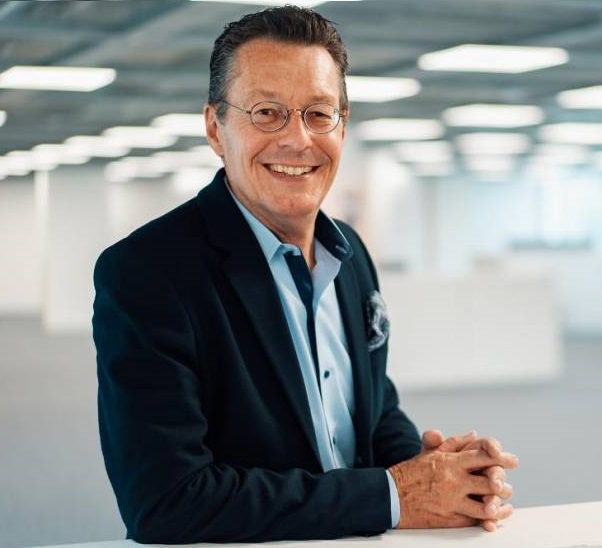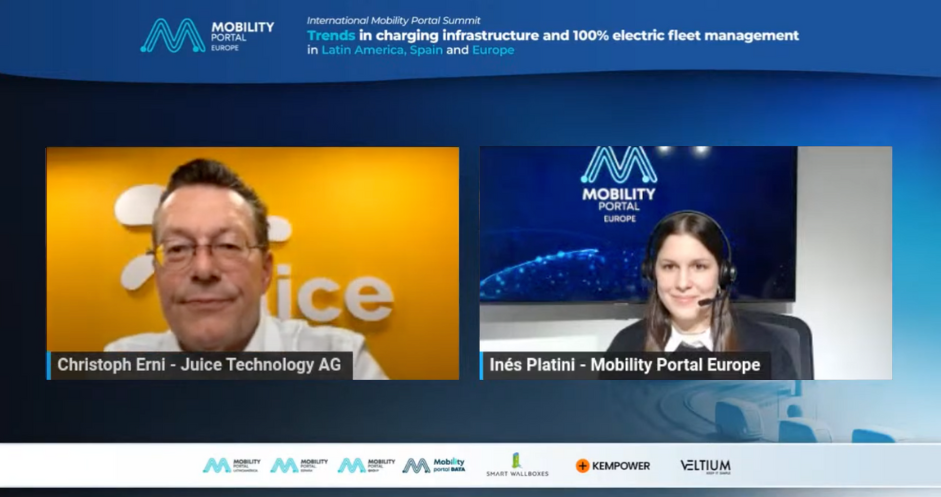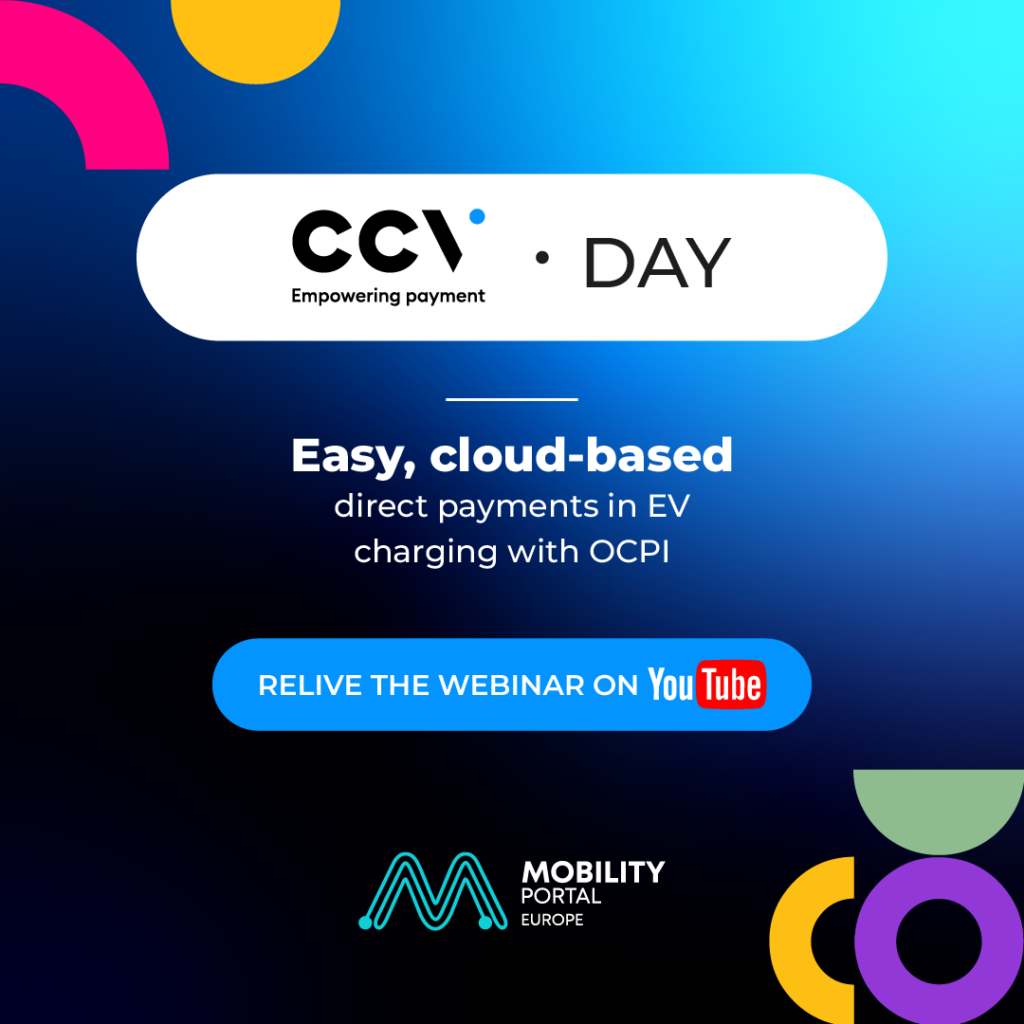During the International Mobility Portal Summit, organized by Mobility Portal Europe, Christoph Erni, CEO and Founder of Juice Technology, reveals details about the energy issues facing the eMobility sector.
Firstly, Erni states: “The grid isn’t designed to cover peaks, and at the same time, we need more power to charge cars quickly.“

The CEO acknowledges that this conflict is affecting various countries in the region, caused by high energy demand and Europe’s poor responsiveness to meet it.
“To meet that demand, installing a new transformer station is necessary, which requires strengthening the entire grid and more power plants,” Erni says.
However, for the founder of Juice Technology, this is not feasible in the short term and, moreover, “it doesn’t make sense to apply it worldwide just to produce more energy.”
“Especially because it’s not permanently necessary, only to cover demand peaks that occur with direct current (DC) stations,” he adds.
To address this difficulty, Juice Technology introduced the JUICE ULTRA 2 battery to the market, a DC charger with a 233 kWh battery, that can be connected to a three-phase industrial plug to provide fast charging for up to 20 cars in succession.
The innovation of this product is that it allows some independence from the grid, as the “stack” charges while EVs are being charged.
That’s why it’s presented as an alternative to energy insufficiency.
“It’s more accessible than a traditional DC station, including the battery in the first year, because you don’t need to reinforce your grid connection or pay peak tariffs. It’s the perfect solution for everyone,” Erni declares.
What characterizes Juice Technology?
“We focus on developing mobile chargers that we sell to various sectors, enabling charging anywhere,” says the CEO.
Juice has been a prominent player in the market for approximately ten years.
The company specializes in developing mobile chargers, catering to various sectors.
Their chargers are designed to offer the ultimate convenience, allowing users to charge practically anywhere: all one needs to do is plug it into any available power outlet.
Juice Technology acknowledges that tariffs on China will be a “backfire”
The relationship between China and the European Union (EU) is currently tense due to the constant back and forth in imposing measures that each power seeks to impose on the other.
Beyond the immediate trade tensions, the EU-China relationship in the electric vehicle sector reflects broader economic and geopolitical dynamics.
In fact, the EU considers the Asian giant to be “unfair” in its competition, providing subsidies and incentives to its producers who market EVs to the other continent.
To prove this, the European Commission initiated on September 13, 2023, a formal investigation into alleged Chinese state subsidies for electric car exports.
The inquiry concluded that, while the final study will end in November of this year, provisional tariffs could be applied to imports of Asian electric cars for up to nine passengers from June, if it is discovered that any company is engaging in unfair competition.
China’s rapid rise as a global economic power has led to increased scrutiny of its trade practices, especially regarding state subsidies and market access.
This situation highlights the complexities of international trade and the challenges of balancing economic interests with fair competition principles.
Moreover, it underscores the importance of transparent and enforceable trade agreements to ensure a level playing field for all stakeholders involved.
However, numerous members of the eMobility sector in the old continent have opposed these policies, as several European companies have factories in the communist country and could be affected.
One of them was Christoph Erni, who stated: “I hope we don’t go for the solution of penalties or taxes because that would certainly cause a backlash for the cars we want to sell in China from Europe.”
In navigating these complexities, policymakers must consider not only short-term trade objectives but also long-term strategic interests and the implications for global economic stability and cooperation.






